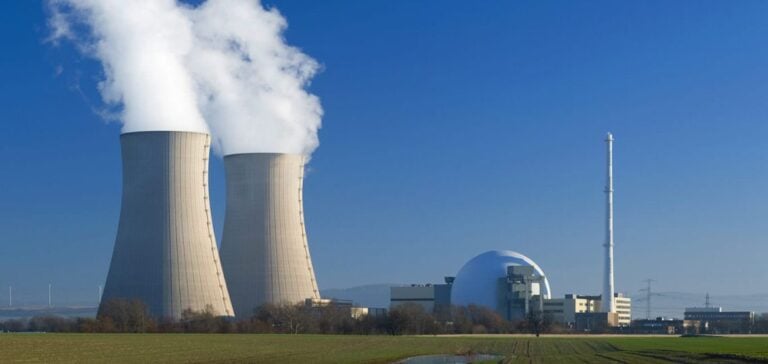In France, the reform aimed at merging the Institut de Radioprotection et de Sûreté Nucléaire (IRSN) and the Autorité de Sûreté Nucléaire (ASN) is changing the nuclear safety structure in place since the 1990s. This initiative, now validated by the French National Assembly and designed to improve the effectiveness of nuclear surveillance, is being contested for its potential conflict between scientific assessment and political decision-making. Nuclear historian Michaël Mangeon stresses the importance of this separation for the confidence and legitimacy of nuclear risk management organizations. The French reform is inspired by the integrated American model, often cited for its unified structure under the Nuclear Regulatory Commission (NRC).
The American model
In the United States, the NRC, created in 1974, is the sole nuclear safety authority, independent of government and reporting only to Congress. It combines assessment and decision-making within various internal offices, while consulting the Advisory Committee on Reactor Safeguards (ACRS) for advice. Unlike in France, the NRC’s decision-making sessions are public, reinforcing transparency and civic participation in nuclear safety management.
Changes in Japan after Fukushima
Following the Fukushima accident in 2011, Japan integrated its nuclear safety institutions into the Nuclear Regulation Authority (NRA), putting an end to criticism of conflicts of interest. The NRA is divided into two main entities, Licensing and Supervision, reflecting a distinct internal organization for decision-making and technical expertise, a model that has restored confidence in the independence of Japanese nuclear regulation.
The debate in Belgium
Belgium also considered merging its nuclear safety entities in 2008, but abandoned the idea in favor of maintaining independence between assessment and decision-making. Benoît De Boeck, ex-director of Bel V, explains that the transition could have led to a loss of critical expertise, underlining the importance of functional independence for nuclear safety.
Potential consequences of the French reform
The French reform, which seeks to simplify the structure of nuclear safety, raises concerns about the possibility of “polluting” scientific expertise with political or economic issues. The clear distinction between expertise and decision-making is seen as a pillar of nuclear safety, essential to maintaining public confidence in nuclear risk management.
By examining other international models, the reform highlights the crucial importance of maintaining a clear separation between technical expertise and political decision-making to ensure the safe and transparent management of nuclear energy. The examples of the USA, Japan and Belgium illustrate the diversity of approaches to nuclear regulation, each with its own merits and challenges. As France contemplates its own path, the fundamental question remains: how can we reconcile the imperative of independent expertise with the need for effective, responsible decision-making in a field as critical as nuclear safety? This reflection is part of a global search for optimized models for nuclear safety governance, underlining the importance of an open and informed debate.






















